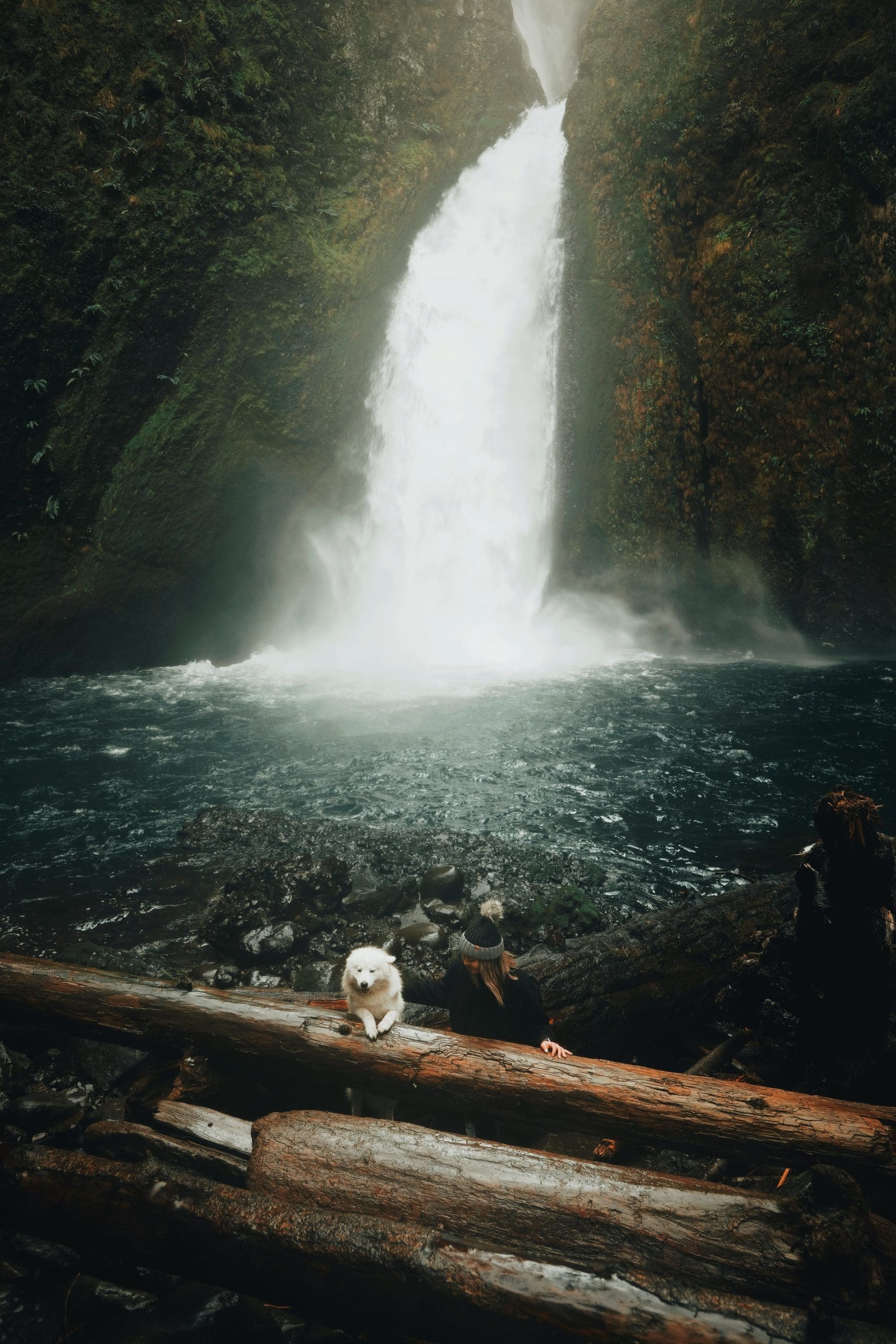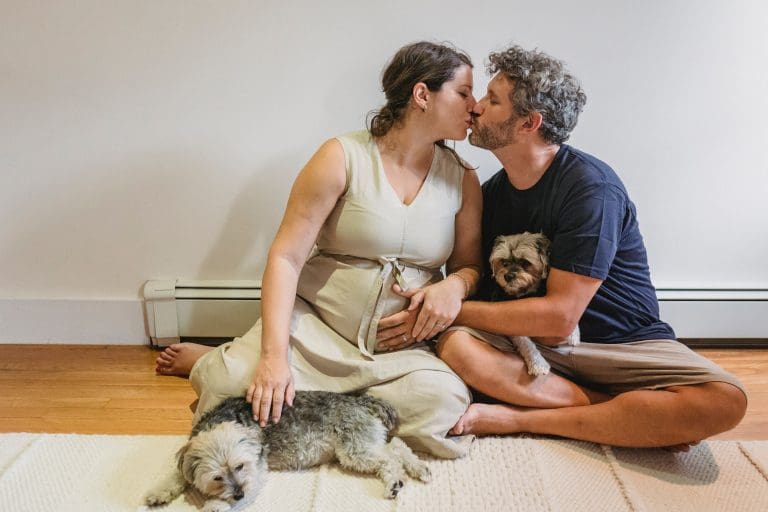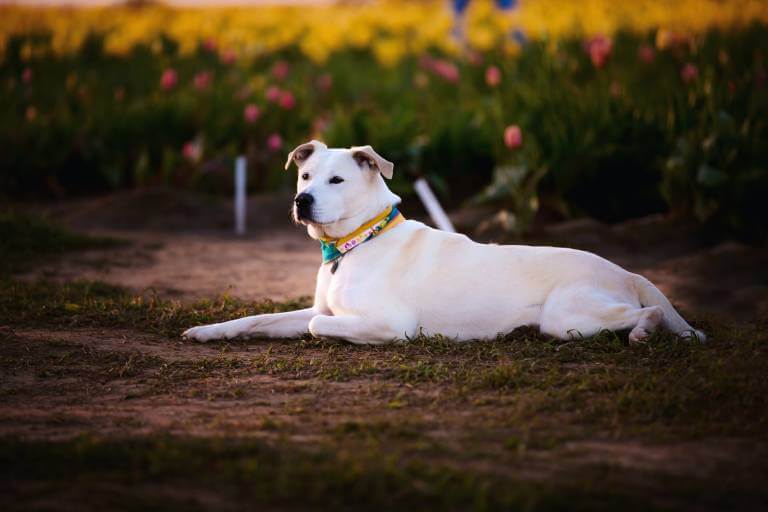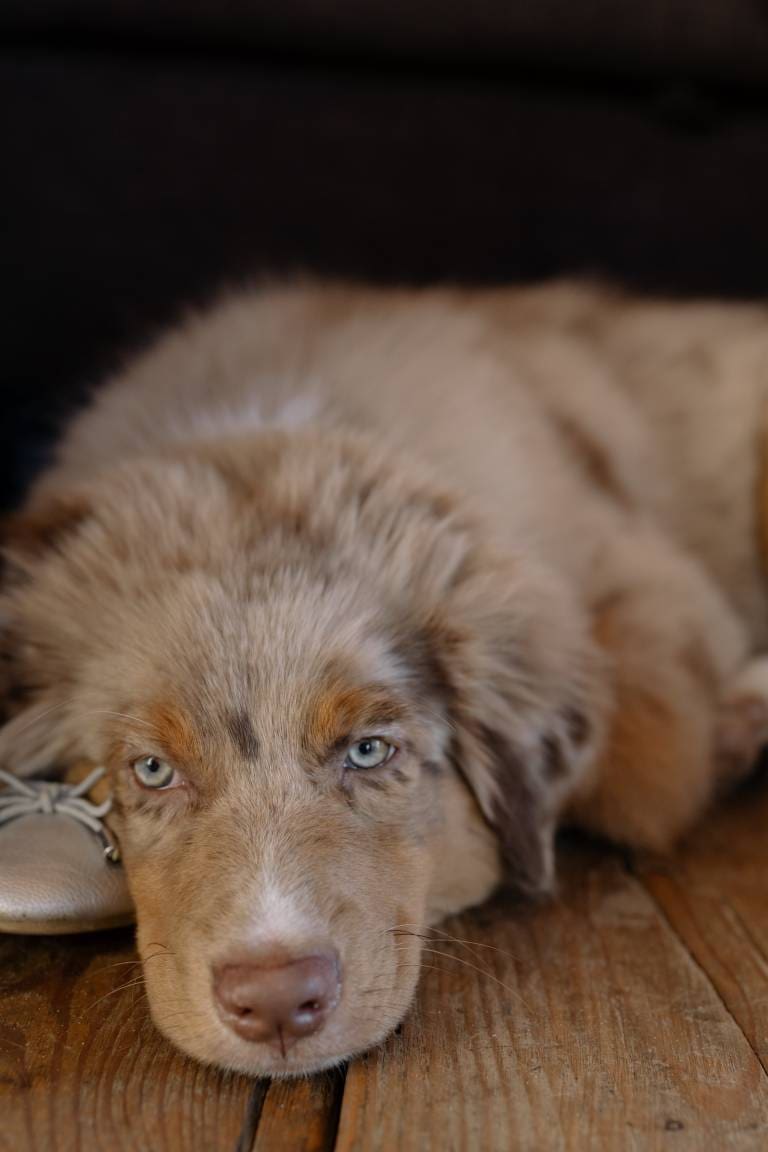Why Do Dogs Eat Cat Poop?
Post Date:
December 10, 2024
(Date Last Modified: November 13, 2025)
Some dogs develop a habit of eating cat feces, a behavior that can frustrate owners and raise health concerns for both pets and people.
What is coprophagia in dogs?
Coprophagia refers to the intentional ingestion of feces by animals, and when a dog targets cat feces specifically the behavior combines aspects of scavenging and selective interest in another species’ stool. [1]
The behavior most commonly appears in young animals, with onset often occurring before 6 months of age in many clinical reports [1]. Dogs may sample feces sporadically or repeatedly during a single housebreaking episode, and veterinarians distinguish routine exploratory mouthing from compulsive or recurrent coprophagia based on frequency and context [1].
Evolutionary and instinctual explanations
Scavenging is a deep-rooted feeding strategy in the canine lineage, and historical diets included carrion and fecal matter when other food was scarce; maternal den-cleaning behavior also provides an instinctual template, since mothers commonly remove or ingest offspring waste to keep nests sanitary for the first 2–3 weeks after birth [2].
Olfactory-driven foraging remains strong in many dogs, and concentrated scents in feces can act as powerful cues for once-useful nutrient sources; what looks maladaptive in a modern home can be an exaggeration of these ancestral tendencies [2].
Nutritional and digestive causes
Physiological drivers include malabsorption disorders and enzyme deficiencies that leave nutrients in the gut and increase a dog’s drive to seek concentrated sources; when exocrine pancreatic insufficiency or chronic malabsorption is present, clinicians calculate maintenance fluids and other clinical support using mL/kg/day formulas such as approximately 50 mL/kg/day for routine maintenance in many adult dogs [3].
Dietary imbalance can also contribute: adult dog maintenance diets should meet established protein minima, and animals on diets that are low in digestible protein or calories may display increased scavenging; clinical guidelines often reference minimum crude protein tiers near 18% on a dry-matter basis for adult maintenance as a baseline in many feeding discussions [3].
Because cats eat highly concentrated diets, their feces can contain undigested fats and proteins that represent an attractive, energy-dense target for some dogs [3].
Sensory appeal of cat feces
Commercial cat foods are formulated for obligate carnivores and often contain much higher crude protein and fat percentages than typical dog maintenance diets; typical cat foods commonly range from about 30% to 45% crude protein on a dry-matter basis, which can leave residues that smell and taste highly palatable to dogs [4].
High-fat components and strong-smelling proteins concentrate through the cat digestive tract, so cat feces may present a richer olfactory and gustatory profile than typical dog stools; warmth and softer texture can further increase interest when a dog encounters fresh deposits [4].
Behavioral and environmental triggers
Boredom and lack of stimulation are frequent contributors; increasing structured activity and environmental enrichment is a common recommendation, and many behavior protocols aim for roughly 30–60 minutes of cumulative active engagement per day for most adult dogs to lower unwanted oral behaviors [2].
Attention-seeking can reinforce the habit when owners react strongly; a dog that receives immediate attention—positive or negative—after an undesired event can be inadvertently rewarded, which makes consistent, neutral correction important during training interventions [2].
Cat-related and litter factors
Cat diet and health affect stool attractiveness: high-calorie or high-protein cat foods tend to produce feces with more residual nutrients, and cats taking certain medications may pass drug residues that change scent or palatability of stools [4].
Practical litter management follows a simple numeric rule to reduce access: provide one litter box per cat plus one extra box, which helps distribute fecal deposits and reduces the likelihood that a dog will find fresh stool in a consistently accessible location [4].
Type of litter matters for accessibility and appeal; lightweight or noncovered boxes placed at floor level are easiest for dogs to inspect, while covered or elevated options can reduce access without stressing the cats [4].
Health risks to dogs
Eating cat feces exposes dogs to parasites and pathogens that can cause illness; certain roundworms and protozoa associated with feline feces are capable of infecting dogs or being mechanically transported, and some parasitic eggs can persist in the environment for extended periods, including months to years under favorable conditions [5].
Bacterial pathogens such as Salmonella and Clostridium can be present in feces and may cause gastrointestinal upset or systemic illness in dogs after ingestion; practitioners caution that any fecal ingestion raises the risk of vomiting, diarrhea, and in select cases pancreatitis or more severe secondary complications [5].
Medication residues and toxins shed in a treated cat’s feces can also present episodic risks; owners should consult veterinarians when a cat is receiving drugs that are known to alter stool composition or have narrow safety margins [5].
| Strategy | How it helps | When to use | Notes |
|---|---|---|---|
| Elevated box | Prevents dog reach | Indoor cats with stable mobility | Combine with ramp for senior cats |
| Covered/automatic box | Limits visibility and access | Households with curious dogs | Watch for cat reluctance |
| Timed scooping | Removes fresh stool quickly | All multi-pet homes | Daily or multiple times/day |
| Training & enrichment | Reduces boredom-related eating | When behavior is learned or attention-seeking | Use consistent, positive methods |
Human health and hygiene implications
Cat feces can contain zoonotic organisms that pose household risk if dogs carry pathogens into the living space; to reduce transmission owners are advised to practice handwashing and surface sanitation after litter handling, with standard public-health guidance recommending washing for at least 20 seconds with soap and water to remove most common contaminants [5].
Safe litter disposal and prompt cleanup of outdoor deposits reduce environmental contamination; composting or open dumping of pet waste is discouraged because parasitic eggs and some bacteria can persist and contaminate soil and water over time [5].
Prevention and management strategies
Effective prevention combines environmental changes, diet adjustments, medical evaluation, and behavioral training. Restricting access by elevating boxes, using enclosed or automatic litter systems, or gating off cat-only rooms reduces opportunities for ingestion; when elevation is used a practical guideline is to create an opening height the cat can use but the dog cannot reliably access, often achieved with a barrier approximately 3 feet (0.9 m) above the floor in many homes [3].
Medical workups are important when coprophagia is persistent or accompanied by weight loss, diarrhea, or other signs; clinicians commonly investigate for malabsorption, parasites, and dental or behavioral drivers, and may recommend enzyme supplementation or targeted therapies based on findings [3].
Behavioral strategies include teaching a reliable “leave it” cue, increasing supervised outdoor time so owners can intervene, and providing enrichment such as food-dispensing toys; consistent neutral responses to attempts (rather than dramatic scolding) prevent inadvertent reinforcement and support extinction of the habit [2].
When environmental and training measures are insufficient, veterinary behaviorists and nutritionists can offer tailored programs that combine diet changes, supplementation, and behavior modification with follow-up monitoring to reduce recurrence and address any underlying medical issues [3].
Advanced prevention and monitoring
For many households, a staged prevention plan is most practical: start with environmental controls, add diet and enrichment changes, then pursue veterinary diagnostics if the behavior continues after consistent management. When scheduling interventions, aim to complete the environmental changes within 1–2 weeks so other measures can be evaluated soon after [4].
Clean-up frequency is a simple, high-impact control: remove feces from litter boxes at least once daily and preferably twice daily when feasible to minimize fresh, warm stools that most attract dogs [4]. If multiple cats use the same area, increase scooping to three times per day during retraining phases [4].
When using physical barriers, consider the practical dimensions: a barrier approximately 36 inches (0.9 m) high or a raised platform that cats can access via steps but dogs cannot often reduces unsupervised contact; measure placement so cats enter comfortably while dogs cannot reliably reach inside [3].
Automatic or timed-cleaning litter boxes that clear waste within 30–60 minutes reduce the window of access and lower temptation, but monitor cat acceptance because some cats avoid sudden-noise or motion devices; evaluate tolerance over 1–2 weeks after installation [4].
Dietary correction should be guided by a veterinarian: when digestive inefficiency is suspected, clinicians may recommend a diagnostic trial or a therapeutic diet for a period of 4–8 weeks to assess response before adding enzyme therapy [3]. Enzyme supplementation (for example, pancreatic enzyme replacement in confirmed exocrine pancreatic insufficiency) requires veterinary prescription and monitoring rather than over-the-counter guessing [3].
Behavioral retraining commonly uses reward-based methods and clear substitution: teach a reliable “leave it” cue and reward compliance with high-value treats or play; expect variable timelines, with many dogs showing measurable improvement within 2–6 weeks of consistent practice and more entrenched behaviors sometimes requiring 8–12 weeks of structured sessions [2].
Increase enrichment to reduce boredom-related ingestion: provide multiple short play or training sessions totaling 30–60 minutes per day distributed across the day, and introduce food puzzle toys that occupy the dog’s foraging drive for 10–20 minutes at a time [2].
Monitoring health is critical: run a fecal parasite check for dogs and cats at least annually for stable adult pets and every 2–3 months for puppies, kittens, or animals with known exposure risk; repeat testing or expanded panels may be indicated sooner if clinical signs appear [1].
If coprophagia continues despite thorough environmental and behavioral measures, seek veterinary evaluation. Veterinary workups commonly include a physical exam, fecal flotation or PCR testing, routine bloodwork, and, when warranted, assessment for pancreatic insufficiency or malabsorption; clinicians often recommend pursuing diagnostics within 2–4 weeks when the problem is persistent or accompanied by weight change or GI signs [3].
Practical examples and owner protocols
A common clinic-recommended protocol for a household with one dog and one cat includes these sequential steps: elevate or enclose the litter box and begin timed scooping (daily or twice daily) immediately, implement a controlled training program with daily “leave it” practice for 5–10 minutes at least once per day, and schedule a veterinary appointment for baseline fecal testing within 2 weeks if the dog has any GI symptoms or if the behavior persists beyond 14 days [4].
For multi-cat homes, adjust litter resources using the “number of cats plus one” heuristic to reduce box crowding and diffusion of deposits: provide one box per cat plus one additional box and distribute them across at least two rooms to lower the chance of a single, easily accessed location drawing a dog’s attention [4].
When owners suspect medication residues or unusual stool palatability from a cat on a therapeutic diet, consult the prescribing veterinarian about timing or protective measures; temporarily placing the cat and its litter in a dog-free zone for the course of the medication (often days to weeks depending on the drug) can be an appropriate short-term tactic under veterinary guidance [5].
Measuring success and when to escalate
Define measurable goals so progress is clear: reduction in observed ingestion events to zero in supervised observation and no unsupervised ingestion for 4 consecutive weeks is a practical benchmark many clinicians use before de-escalating interventions [2].
Escalate to specialty referral (veterinary internist, behaviorist, or nutritionist) when medical causes are identified, when the behavior persists beyond 8–12 weeks despite appropriate measures, or when the dog’s physical health is affected by the behavior (for example, weight loss, recurrent GI signs, or evidence of parasitic infection) [3].
Long-term maintenance often combines routine environmental vigilance (scooping and restricted access), ongoing enrichment, and periodic veterinary screening; many households find that once the habit is extinguished and medical contributors addressed, occasional monitoring every 6–12 months is sufficient for adult pets without other risk factors [1].






